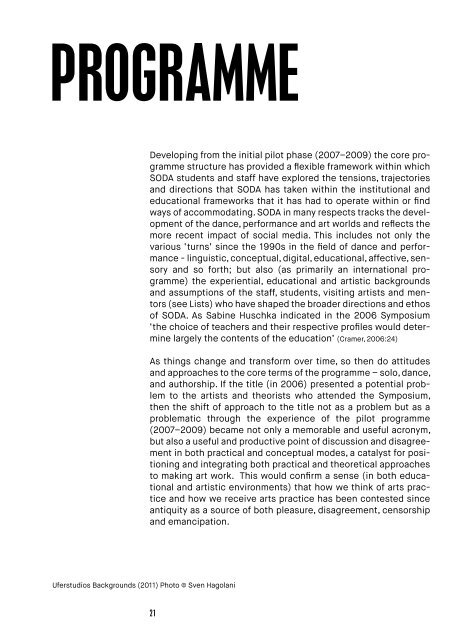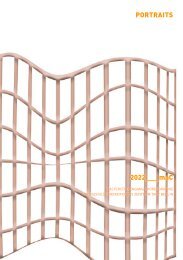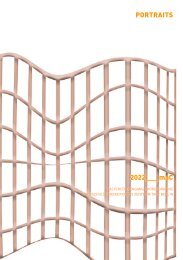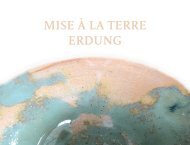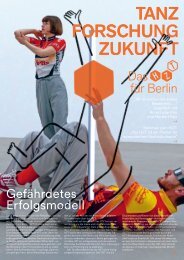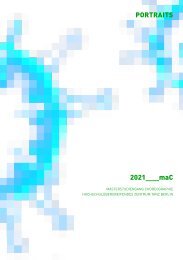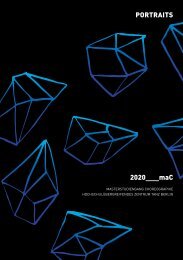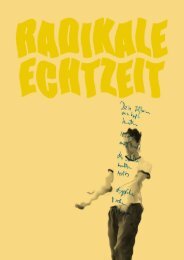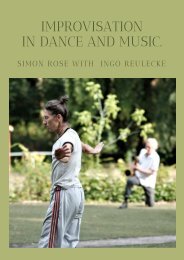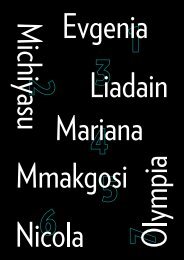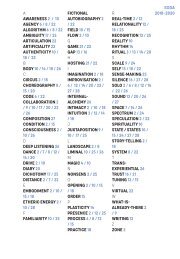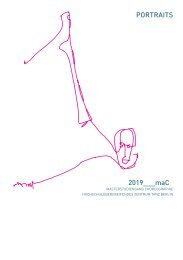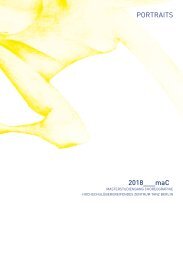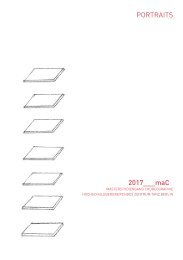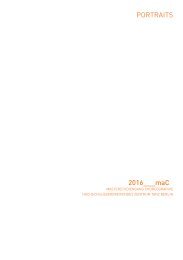A Decade of MA Solo Dance Authorship
In the frame of the 10th anniversary of MA SODA in 2017, the independent writer, editor and consultant and former guest professor Richard Allsopp edited the publication “SODA – A DECADE OF MA SOLO DANCE AUTHORSHIP”. “The aim of this book on a decade of SODA at the HZT Berlin is to provide a retrospective insight into the imaginative, discursive and educational spaces that the SODA programme has opened-up since its beginning in 2007. [...]" Ric Allsopp, November 2017
In the frame of the 10th anniversary of MA SODA in 2017, the independent writer, editor and consultant and former guest professor Richard Allsopp edited the publication “SODA – A DECADE OF MA SOLO DANCE AUTHORSHIP”.
“The aim of this book on a decade of SODA at the HZT Berlin is to provide a retrospective insight into the imaginative, discursive and educational spaces that the SODA programme has opened-up since its beginning in 2007. [...]" Ric Allsopp, November 2017
Create successful ePaper yourself
Turn your PDF publications into a flip-book with our unique Google optimized e-Paper software.
PROGRAMME<br />
Developing from the initial pilot phase (2007–2009) the core programme<br />
structure has provided a flexible framework within which<br />
SODA students and staff have explored the tensions, trajectories<br />
and directions that SODA has taken within the institutional and<br />
educational frameworks that it has had to operate within or find<br />
ways <strong>of</strong> accommodating. SODA in many respects tracks the development<br />
<strong>of</strong> the dance, performance and art worlds and reflects the<br />
more recent impact <strong>of</strong> social media. This includes not only the<br />
various ‘turns’ since the 1990s in the field <strong>of</strong> dance and performance<br />
- linguistic, conceptual, digital, educational, affective, sensory<br />
and so forth; but also (as primarily an international programme)<br />
the experiential, educational and artistic backgrounds<br />
and assumptions <strong>of</strong> the staff, students, visiting artists and mentors<br />
(see Lists) who have shaped the broader directions and ethos<br />
<strong>of</strong> SODA. As Sabine Huschka indicated in the 2006 Symposium<br />
‘the choice <strong>of</strong> teachers and their respective pr<strong>of</strong>iles would determine<br />
largely the contents <strong>of</strong> the education’ (Cramer, 2006:24)<br />
As things change and transform over time, so then do attitudes<br />
and approaches to the core terms <strong>of</strong> the programme – solo, dance,<br />
and authorship. If the title (in 2006) presented a potential problem<br />
to the artists and theorists who attended the Symposium,<br />
then the shift <strong>of</strong> approach to the title not as a problem but as a<br />
problematic through the experience <strong>of</strong> the pilot programme<br />
(2007–2009) became not only a memorable and useful acronym,<br />
but also a useful and productive point <strong>of</strong> discussion and disagreement<br />
in both practical and conceptual modes, a catalyst for positioning<br />
and integrating both practical and theoretical approaches<br />
to making art work. This would confirm a sense (in both educational<br />
and artistic environments) that how we think <strong>of</strong> arts practice<br />
and how we receive arts practice has been contested since<br />
antiquity as a source <strong>of</strong> both pleasure, disagreement, censorship<br />
and emancipation.<br />
Uferstudios Backgrounds (2011) Photo © Sven Hagolani<br />
21


